Filter by
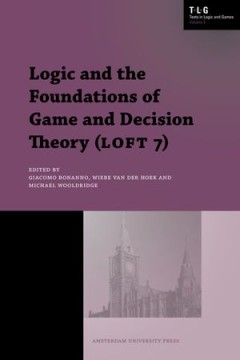
Logic and the Foundations of Game and Decision Theory (LOFT 7)
This volume collects together revised papers originally presented at the 7th Conference on Logic and the Foundations of Game and Decision Theory (LOFT 2006). LOFT is a key venue for presenting research at the intersection of logic, economics and computer science, and the present collection gives a lively and wide-ranging view of an exciting and rapidly growing area.
- Edition
- volume 3.0
- ISBN/ISSN
- 9789089640260
- Collation
- -
- Series Title
- -
- Call Number
- -
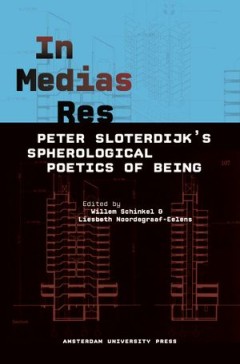
In Medias Res
Sloterdijk has in recent years grown into one of Germany’s most influential thinkers. His work, which is extremely relevant for philosophers, scientists of art and culture, sociologists, political scientists and theologists, is only now gradually being translated in English. This book makes his work accessible to a wider audience by putting it to work in orientation towards current issues.
- Edition
- -
- ISBN/ISSN
- 9789089643292
- Collation
- -
- Series Title
- -
- Call Number
- -
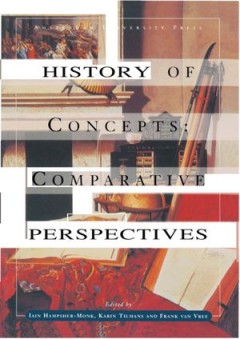
History of Concepts
Although vastly influential in German-speaking Europe, conceptual history (Begriffsgeschichte) has until now received little attention in English. This genre of intellectual history differs from both the French history of mentalités and the Anglophone history of discourses by positing the concept - the key occupier of significant syntactical space - as the object of historical investigation. C…
- Edition
- -
- ISBN/ISSN
- 9789053563069
- Collation
- -
- Series Title
- -
- Call Number
- -
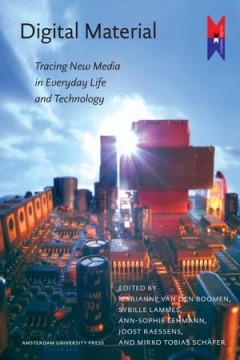
Digital Material
Three decades of societal and cultural alignment of new media have yielded a host of innovations, trials, and problems, accompanied by versatile popular and academic discourse. New Media Studies crystallized internationally into an established academic discipline, and this begs the question: where do we stand now? Which new questions are emerging now that new media are being taken for granted, …
- Edition
- volume 2.0
- ISBN/ISSN
- 9789089640680
- Collation
- -
- Series Title
- -
- Call Number
- -
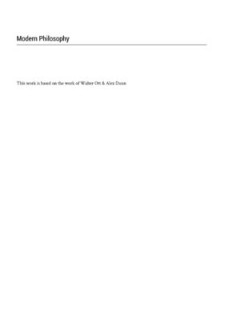
Modern Philosophy
This is a textbook (or better, a workbook) in modern philosophy. It combines readings from primary sources with two pedagogical tools. Paragraphs in italics introduce figures and texts. Numbered study questions (also in italics) ask students to reconstruct an argument or position from the text, or draw connections among the readings. And I have added an introductory chapter (Chapter 0 – Minil…
- Edition
- -
- ISBN/ISSN
- -
- Collation
- -
- Series Title
- -
- Call Number
- -

Whistleblowing in the Australian Public Sector
Of the many challenges in public sector management, few are as complex as the management of whistleblowing. Because it can lead to the discovery and rectification of wrongdoing, public interest whistleblowing is widely acknowledged as being positive for organisations and for society at large. However, the conflicts and reprisal risks often associated with whistleblowing also support a widesprea…
- Edition
- -
- ISBN/ISSN
- 9781921536199
- Collation
- -
- Series Title
- -
- Call Number
- -
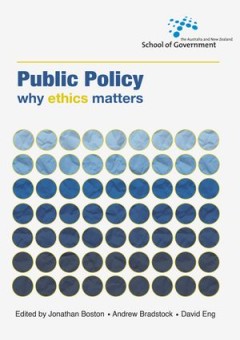
Public Policy
Ethics is a vigorously contested field. There are many competing moral frameworks, and different views about how normative considerations should inform the art and craft of governmental policy making. What is not in dispute, however, is that ethics matters. The ethical framework adopted by policy analysts and decision makers not only shapes how policy problems are defined, framed and analysed, …
- Edition
- -
- ISBN/ISSN
- 9781921666759
- Collation
- -
- Series Title
- -
- Call Number
- -

Performance Measurement, Reporting, Obstacles and Accountability
This special issue of Humanities Research journal draws on a selection of papers from The Australian National University’s ‘Key Thinkers’ lecture series, which I convened in 2008 and 2009 under the aegis of the Research School of Humanities. As a postgraduate at the University of Sydney in the early 2000s, I had the pleasure of hearing Ghassan Hage give an inspirational lecture on the…
- Edition
- -
- ISBN/ISSN
- 9781920942793
- Collation
- -
- Series Title
- -
- Call Number
- -
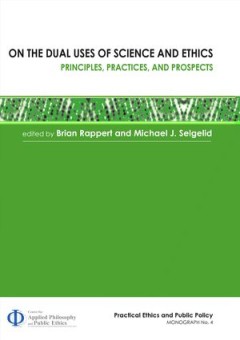
On the Dual Uses of Science and Ethics
Claims about the transformations enabled by modern science and medicine have been accompanied by an unsettling question in recent years: might the knowledge being produced undermine – rather than further – human and animal well being? On the Dual Uses of Science and Ethics examines the potential for the skills, know-how, information, and techniques associated with modern biology to serve co…
- Edition
- -
- ISBN/ISSN
- 9781925021349
- Collation
- -
- Series Title
- -
- Call Number
- -
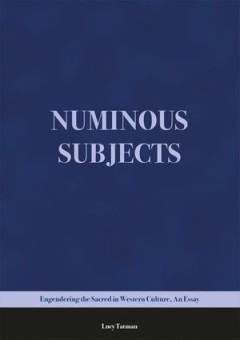
Numinous Subjects
Part religious studies, part feminist theory, part philosophy, part indescribable: such is Numinous Subjects. Described by the author as ‘a kaleidoscopic exploration of why three gendered figures of the sacred matter within western culture,’ the experience of reading this text truly is akin to gazing through a constantly turning kaleidoscope. Images, concepts, phrases and quotes are continu…
- Edition
- -
- ISBN/ISSN
- 9781921313004
- Collation
- -
- Series Title
- -
- Call Number
- -
 Computer Science, Information & General Works
Computer Science, Information & General Works  Philosophy & Psychology
Philosophy & Psychology  Religion
Religion  Social Sciences
Social Sciences  Language
Language  Pure Science
Pure Science  Applied Sciences
Applied Sciences  Art & Recreation
Art & Recreation  Literature
Literature  History & Geography
History & Geography